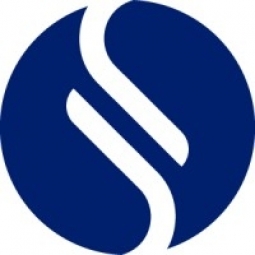Customer Company Size
Large Corporate
Region
- Europe
- America
- Asia
Country
- Germany
- China
- Morocco
- Spain
Product
- Sphera Supply Chain Risk Management
- Sphera Sub-tier Visibility
- Sphera Supply Risk Network
- Sphera Risk Radar Network Edition
Tech Stack
- Cloud-based Supply Chain Management
Implementation Scale
- Enterprise-wide Deployment
Impact Metrics
- Cost Savings
- Productivity Improvements
- Brand Awareness
- Customer Satisfaction
Technology Category
- Platform as a Service (PaaS) - Connectivity Platforms
Applicable Industries
- Automotive
- Equipment & Machinery
Applicable Functions
- Procurement
- Logistics & Transportation
Use Cases
- Supply Chain Visibility
- Predictive Maintenance
- Inventory Management
Services
- Cloud Planning, Design & Implementation Services
- System Integration
About The Customer
DEUTZ Group is one of the world’s leading manufacturers of innovative drive systems for off-highway applications. The company is headquartered in Cologne, Germany and was founded in 1864 as the world’s first engine company. Its core competencies are the development, production, and distribution of drive solutions used in a wide range of applications including construction equipment, agricultural machinery, material handling equipment, commercial and rail vehicles, and boats. The current portfolio extends from diesel and gas engines to hybrid, all-electric, and hydrogen drives. In 2021, DEUTZ employed around 4,750 people worldwide and generated revenue of approx. €1.6 billion in more than 130 countries across Europe, the Americas, and Asia/Pacific. The global production network extends to Germany, Spain, the USA, China, and Morocco. DEUTZ maintains business relationships with more than 4,500 direct and indirect suppliers in more than 40 countries. With a purchasing volume of nearly €1.2 billion worldwide, its supply chain makes a significant contribution to its value creation process.
The Challenge
DEUTZ, a leading manufacturer of innovative drive systems, faced challenges in securing its supply chain and being risk aware. The company had integrated Sphera Supply Chain Risk Management into its global risk management within procurement, but realized that limited visibility into sub-tiers represented a significant risk of supply disruptions or shortfalls. In 2022, the focus was on meeting strong demand, fulfilling delivery obligations, and keeping supply chains up and running. At the same time, the German Supply Chain Act with special focus on human rights and environmental protection along the supply chain, drove companies such as DEUTZ to perform risk management and reporting for all suppliers. DEUTZ’s attempt at manual identification of sub-tier suppliers failed due to two significant hurdles: it did not meet the requirements of the European General Data Protection Regulation (GDPR) and it involved a high expenditure of time, yet did not provide value to neither DEUTZ nor their customers.
The Solution
To increase transparency across the supply network and uncover sub-tier risks faster, DEUTZ decided to implement Sphera Sub-tier Visibility in 2021. In this approach, enterprises invite their suppliers to join Sphera Supply Risk Network, and to share basic information about their own suppliers. As soon as suppliers upload data on their relevant suppliers, enterprises can visualize their sub-tiers on a digital world map within Sphera Supply Chain Risk Management. Using this collaborative approach enables companies to connect the dots, create multi-tier transparency, and monitor risk below their direct suppliers. With visibility throughout the supply network, companies gain early insights into risks before these become critical. Suppliers benefit from being able to visualize their own suppliers on a world map and receive risk alerts free of charge through Sphera Risk Radar Network Edition. These capabilities empower suppliers to become more risk aware, react faster, and thus avoid disruption in their own supply chains. In this way, the entire supply network becomes more resilient.
Operational Impact
Quantitative Benefit

Case Study missing?
Start adding your own!
Register with your work email and create a new case study profile for your business.
Related Case Studies.

Case Study
Smart Water Filtration Systems
Before working with Ayla Networks, Ozner was already using cloud connectivity to identify and solve water-filtration system malfunctions as well as to monitor filter cartridges for replacements.But, in June 2015, Ozner executives talked with Ayla about how the company might further improve its water systems with IoT technology. They liked what they heard from Ayla, but the executives needed to be sure that Ayla’s Agile IoT Platform provided the security and reliability Ozner required.

Case Study
IoT enabled Fleet Management with MindSphere
In view of growing competition, Gämmerler had a strong need to remain competitive via process optimization, reliability and gentle handling of printed products, even at highest press speeds. In addition, a digitalization initiative also included developing a key differentiation via data-driven services offers.

Case Study
Predictive Maintenance for Industrial Chillers
For global leaders in the industrial chiller manufacturing, reliability of the entire production process is of the utmost importance. Chillers are refrigeration systems that produce ice water to provide cooling for a process or industrial application. One of those leaders sought a way to respond to asset performance issues, even before they occur. The intelligence to guarantee maximum reliability of cooling devices is embedded (pre-alarming). A pre-alarming phase means that the cooling device still works, but symptoms may appear, telling manufacturers that a failure is likely to occur in the near future. Chillers who are not internet connected at that moment, provide little insight in this pre-alarming phase.

Case Study
Premium Appliance Producer Innovates with Internet of Everything
Sub-Zero faced the largest product launch in the company’s history:It wanted to launch 60 new products as scheduled while simultaneously opening a new “greenfield” production facility, yet still adhering to stringent quality requirements and manage issues from new supply-chain partners. A the same time, it wanted to increase staff productivity time and collaboration while reducing travel and costs.

Case Study
Integration of PLC with IoT for Bosch Rexroth
The application arises from the need to monitor and anticipate the problems of one or more machines managed by a PLC. These problems, often resulting from the accumulation over time of small discrepancies, require, when they occur, ex post technical operations maintenance.

Case Study
Data Gathering Solution for Joy Global
Joy Global's existing business processes required customers to work through an unstable legacy system to collect mass volumes of data. With inadequate processes and tools, field level analytics were not sufficient to properly inform business decisions.







